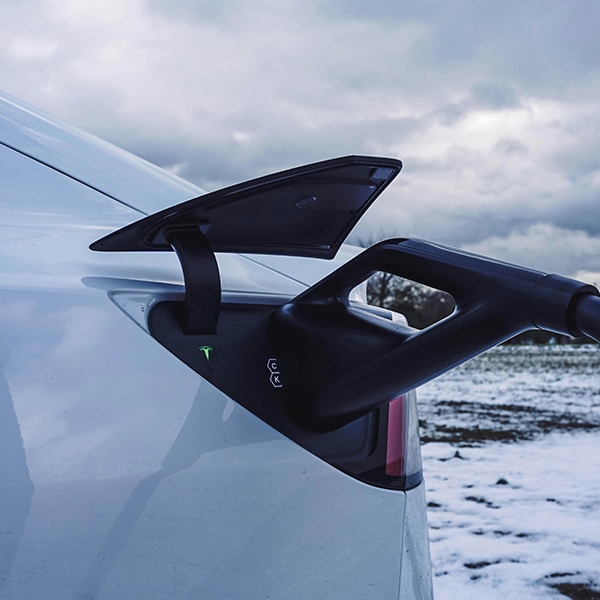
How Going Green with Your Fleet Can Boost Your Bottom Line

(Posted on 09/08/24)
Achieve greater efficiency and lower costs by transitioning to a greener fleet. By adopting more energy-efficient vehicles for your employees, you can maximise savings while enhancing your company's environmental responsibility.
There’s no denying that electric vehicles (EVs) are becoming increasingly integral to the modern world. With mounting pressure on businesses and car manufacturers to transition to electric, the focus on reducing carbon footprints is more pronounced than ever. Many companies are now prioritising net-zero goals, driven by both regulatory expectations and corporate responsibility.
The transition to an electric fleet may have already started for your business, but uncertainties and reservations remain. In this article, we'll explore the tangible benefits of adopting a green fleet, as well as some potential challenges. Whether you’re enthusiastic about going green or view it as an inevitable step, embracing electric vehicles is becoming essential for all businesses.
Understanding the financial and environmental impacts can help you navigate this transition more effectively and position your company for long-term success.
Cost Savings and Efficiency
Electric vehicles can significantly lower the total cost of owning a company car. The main reason for this is the elimination of road tax. Additionally, businesses can save substantially on fuel costs. Electric vehicle fleets can save up to 80% on fuel expenses compared to conventional fleets. For instance, the annual fuel cost of a Volkswagen ID.3 is approximately £630, while a Ford Focus diesel costs around £1,230 annually. The difference between these vehicles demonstrates the substantial savings that can be achieved when transitioning an entire fleet to electric vehicles. Not only this but you frequently travel in the Ultra Low Emission Zone (ULEZ) you can save yourself thousands with it covering such a wide area it is hard to avoid and not this but you have congestion charges you could avoid.
Tax Benefits
You can also claim 5p per mile when driving your company car on business, and charging your EV at work is exempt from tax. Drivers can make significant savings on company car tax by choosing an electric vehicle. Known as Benefit in Kind (BIK) tax, company car drivers pay just 2% BIK during 2022/23, with the same rate applying for the tax years 2023/24 and 2024/25. Since the amount of company car tax is based on your annual salary and the value of your car, this could mean substantial savings.
Maintenance Savings
Maintenance of electric vehicles (EVs) is significantly reduced as they do not require air filters, oil changes, or timing belt replacements. Unlike combustion engine cars, electric vehicles use a single-unit battery system instead of many different components working together. This simplification means significantly fewer trips to the garage for maintenance, resulting in both time and cost savings. For fleet managers, this translates to increased vehicle uptime, lower maintenance budgets, and an overall more efficient operation. Embracing EVs not only supports sustainability goals but also enhances the financial and operational aspects of fleet management.
Range and Charging Infrastructure
There is a common misconception that going electric is expensive and that EVs have limited range. While this may have been true a few years ago, the industry has evolved rapidly. Many car manufacturers now offer EVs with impressive ranges. For example, the Volkswagen ID.7 boasts a range of 437 miles, and the Renault Master Van offers a range of 285 miles. These advancements mean that range anxiety is becoming a thing of the past, as modern EVs now offer ranges comparable to traditional combustion engine vehicles.
Moreover, concerns about charging times have been addressed with faster-charging technologies. The introduction of rapid charging allows EVs to be charged up to 80% in just 20-40 minutes, depending on the model and battery capacity. As of June 2024, there are over 12,500 rapid or ultra-rapid charging devices across the UK, making it easier than ever to keep electric vehicles on the road with minimal downtime.
Public Charging Infrastructure
The infrastructure of public chargers in the UK continues to expand, making it increasingly convenient to charge electric vehicles wherever you are. While it's not yet as convenient as filling up at a petrol station, rapid and ultra-rapid charging, along with improved EV ranges, are closing the gap. It’s understandable to have concerns about charging availability, but this issue has greatly improved in recent years. We can expect to see even more vehicles with larger ranges in the near future.
Government Grants and Incentives
We can’t overlook the need for infrastructure when transitioning to an electric fleet, including installing on-site chargers for vehicles. The positive aspect of overnight charging is that electricity is cheaper, and if you don’t need a rapid charge, you can avoid the higher costs associated with rapid charging. Currently, there are government grants available for small to medium-sized businesses to help with the cost of installing electric vehicle charging points. These grants, which end in March 2025, cover 75% of the installation costs, up to £15,000. This includes up to £350 per charge point socket installed and up to £500 per parking space enabled with supporting infrastructure. Additionally, the Workplace Charging Scheme supports organisations by covering the cost of installing up to 40 electric vehicle charge point sockets on their premises.
Enhancing Company Image
Having EV chargers on-site is a great way to demonstrate your commitment to adopting electric vehicles. Visitors and customers can see and use the chargers themselves, which enhances your company’s green credentials. Additionally, employees may find it more convenient and attractive to use company cars if they can charge them at work, providing an extra incentive for them to support your EV initiatives.
By embracing electric vehicles and investing in the necessary infrastructure, your company can enjoy substantial financial and operational benefits, contributing to long-term success and sustainability.
Long-Term Investment
Investing in electric vehicles (EVs) is not merely a short-term expense but a strategic, long-term investment that can significantly enhance your company’s asset value over time. As EV technology advances and becomes more mainstream, the value of your fleet is likely to increase, making it a forward-thinking investment.
Incorporating EV chargers on-site can further boost the value of your property, as businesses with green infrastructure are often viewed more favorably. Additionally, charging your own EVs on-site is typically more cost-effective than relying on public charging stations, helping to reduce operational expenses.
For businesses considering leasing EVs rather than purchasing, this approach can alleviate concerns about depreciation, as you’re not tied to the vehicle's residual value. Moreover, as the EV market matures, resale values are improving, providing a more attractive proposition for future asset management. Leasing also offers flexibility and the opportunity to upgrade to the latest technology without bearing the full brunt of depreciation.
In summary, investing in EVs and associated infrastructure offers not just immediate operational benefits but also positions your business strategically for future growth, increased asset value, and enhanced market competitiveness.
Get in touch with one of our experts to learn how we can assist you on your fleet journey . Call us at 0800 032 1433 or email us at info@fleetsauce.co.uk.
 Expert Advice
Expert Advice  Competitive Prices
Competitive Prices Road Tax & Roadside Assistance
Road Tax & Roadside Assistance Free National Delivery
Free National Delivery Full Manufacturer’s Warranty
Full Manufacturer’s Warranty





